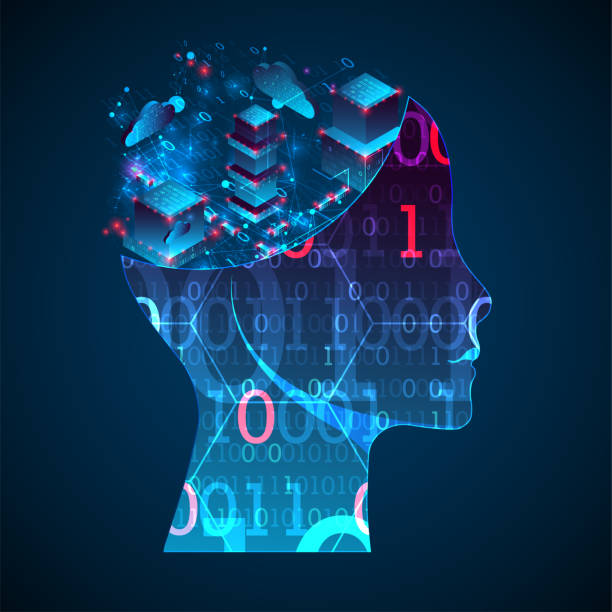Introduction: The Transformation of the Labor Market with the Advent of Artificial Intelligence
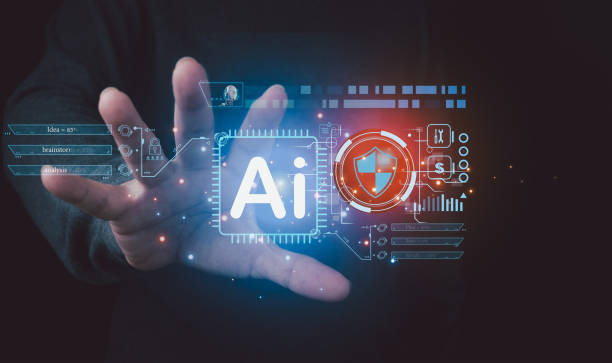
The advent of Artificial Intelligence (AI) into various aspects of human life has not only revolutionized industries but also sparked widespread discussions about #TheFutureOfWork and #LaborMarketChanges. This advanced technology, with capabilities such as machine learning, natural language processing, and computer vision, holds immense potential for automating repetitive tasks, optimizing processes, and creating new values. While some are concerned about the loss of current jobs, many others believe that AI will actually bring a wave of new job opportunities and enrich the nature of many existing jobs. The impact of Artificial Intelligence on jobs is complex and multifaceted, requiring a deep understanding of its potentials and limitations.
This article comprehensively examines the future of AI in the workplace. We will strive to analyze various dimensions of this phenomenon with an analytical and explanatory approach; from jobs that may be affected to those that are emerging. We will also point out the essential skills for adapting to these changes and the role of education and retraining in this path. Finally, by looking at the challenges and opportunities, we will provide a clear vision of the world of work in the age of AI. This is an informative and explanatory content that will help you prepare for these transformations and make the most of the opportunities ahead. Understanding these changes is vital for anyone seeking employment or active in the labor market.
Do you know that customers’ first impression of your company is your website? Multiply your business’s credibility with a powerful corporate website from Rasaweb!
✅ Custom and eye-catching design tailored to your brand
✅ Improved user experience and increased customer attraction
⚡ Get a free consultation!
Deep Transformations in the Labor Market Following the Expansion of Artificial Intelligence
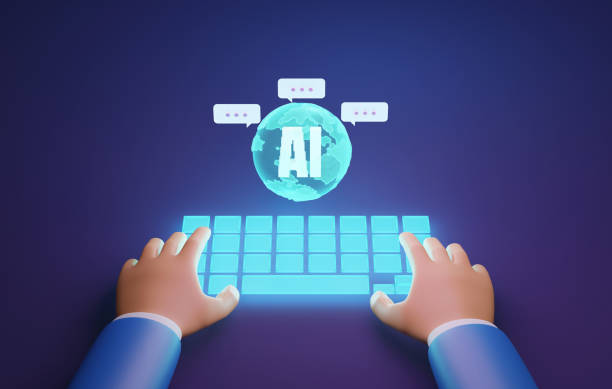
Artificial Intelligence is not merely a technological tool; it is considered a driving force for fundamental transformations in the structure of the labor market. This technology not only increases productivity in many industries but also redefines job duties and roles. Jobs requiring repetitive and rule-based tasks have the greatest potential for automation by AI. For example, in the manufacturing sector, AI-powered robots can perform assembly and quality control with unprecedented accuracy and speed. In customer service, intelligent chatbots can handle frequently asked questions, reducing the workload for human representatives.
However, this does not mean the complete elimination of human labor, but rather a change in the nature of work. The transformations in the labor market with AI are shifting more towards jobs that require creativity, critical thinking, complex problem-solving, emotional intelligence, and human interaction. This is where the role of humans alongside AI becomes more prominent. For example, while AI can analyze medical data, it is the doctor who, using their knowledge, experience, and human empathy, makes the final diagnosis and determines the treatment plan. This is an analytical and specialized content that delves into the deeper dimensions of these transformations, showing how AI is redefining our jobs rather than merely replacing them. Understanding this fundamental difference is essential for future planning.
New Jobs and Emerging Opportunities in the Age of Artificial Intelligence
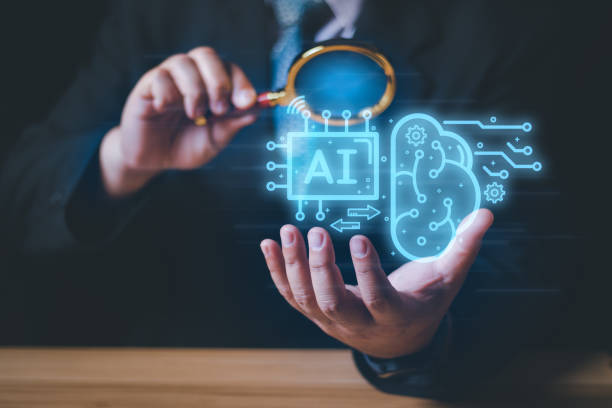
Despite concerns about job displacement, Artificial Intelligence is opening new doors to unprecedented job opportunities. This phenomenon has occurred in every industrial revolution; with each technological transformation, old jobs have disappeared, but new and more diverse jobs have emerged. AI is no exception and is increasingly creating specialized and innovative roles. These AI-driven job opportunities are primarily focused on the development, maintenance, training, and interaction with AI systems.
Some of these new jobs include: AI Engineer, Machine Learning Specialist, Data Scientist, AI Ethicist, User Experience (UX) Designer for AI Systems, AI Strategy Consultant, and even professionals in workforce training and retraining for adapting to these technologies. These jobs require a combination of technical and soft skills. For example, an AI engineer must not only know how to code but also possess creative problem-solving and teamwork abilities. Below, an educational guide table is provided, illustrating some emerging jobs and their required skills:
| Job Title | General Job Description | Key Required Skills |
|---|---|---|
| AI Engineer | Designing, developing, and deploying AI and machine learning systems. | Programming (Python, R), deep knowledge of machine learning and neural networks, software engineering. |
| Data Scientist | Collecting, analyzing, and interpreting large datasets to extract valuable insights. | Statistics, predictive modeling, data visualization, SQL, programming. |
| AI Ethicist | Reviewing and formulating ethical principles and accountability in the design and use of AI. | Philosophy, law, sociology, understanding of AI technology, critical thinking. |
| AI Trainer/Educator | Training and educating workforce to work with AI technologies. | Deep knowledge of AI, teaching skills, communication, ability to simplify complex concepts. |
Essential Skills for Survival in the Age of Artificial Intelligence
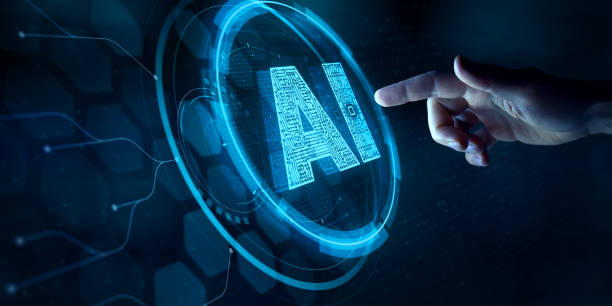
Given the job prospects of Artificial Intelligence, mere technical skills are no longer sufficient for success. In a world where many routine tasks are performed by machines, human and cognitive skills are gaining increasing importance. These skills help individuals collaborate with AI, manage it, and use it to solve complex problems. The most important of these skills include critical thinking, complex problem-solving, creativity, innovation, emotional intelligence, and the ability to collaborate interdisciplinarily.
Furthermore, data literacy and the ability to work with AI tools are also highly important. This does not mean that everyone needs to become an AI programmer, but rather understanding how AI works, comprehending its limitations, and being able to use its tools to improve job performance. For example, a marketing manager needs to know how to use AI algorithms to analyze customer behavior and personalize campaigns. This is a guiding and educational content that helps individuals map out their skill development path for a future career in the age of AI and be prepared for changes. Investing in these skills is the key to survival and progress in the evolving future labor market.
Do you know that customers’ first impression of your company is your website? Multiply your business’s credibility with a powerful corporate website from Rasaweb!
✅ Custom and eye-catching design tailored to your brand
✅ Improved user experience and increased customer attraction
⚡ Get a free consultation!
Challenges and Concerns on the Path of AI’s Career Future
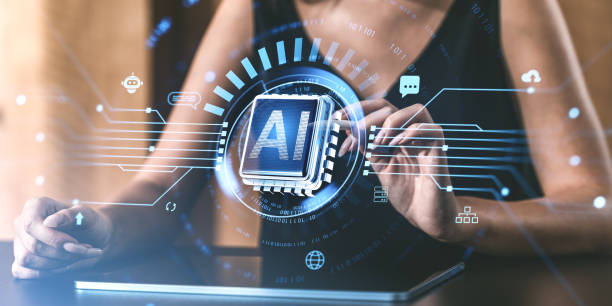
Alongside the countless opportunities created by Artificial Intelligence, one must not overlook the challenges and concerns related to AI’s career future. One of the main concerns is the potential for widespread job displacement. As new jobs are created, some others may become obsolete or significantly decline due to automation. This can lead to increased social inequality, structural unemployment, and pressure on welfare systems, especially if comprehensive retraining programs and support for displaced workers are not in place.
Another concern relates to the nature of work and the quality of work-life. Will the remaining jobs have the necessary appeal and meaning? Will AI lead to increased surveillance of employees and reduced autonomy? Furthermore, ethical issues related to algorithmic bias, data privacy, and accountability for AI decisions pose significant challenges. This is a thought-provoking and analytical content that delves into these ambiguities and concerns. Addressing these challenges requires cooperation among governments, companies, educational institutions, and civil society to ensure a fair and humane transition to the age of AI and prevent potential negative consequences.
The Role of Education and Retraining in Shaping New Career Paths
![]()
To succeed in career paths in the age of Artificial Intelligence, retraining and lifelong learning have become an unavoidable necessity. Traditional educational systems alone cannot keep pace with the speed of technological developments. Individuals and organizations must actively participate in reskilling and upskilling programs. These programs can include short-term training courses, specialized certifications, boot camps, and online learning platforms that teach the new skills required by the job market.
Governments and companies also have a vital role in this process. Governments can facilitate this transition by investing in educational infrastructure, providing financial incentives for retraining, and creating appropriate legal frameworks. Companies, too, must accept their responsibility for developing their employees’ skills and implement internal training programs. This not only helps employees retain their jobs but also helps companies cultivate the talents they need within the organization. This is an educational and guiding content that emphasizes the strategic importance of training and skill development for adapting to changes brought by AI.
Artificial Intelligence and the Transformation of Various Industries: From Healthcare to Finance

The impact of Artificial Intelligence on the future of jobs is not limited to a few specific industries; rather, it encompasses almost all economic sectors. Every industry will face changes that require adaptation and innovation. In the field of medicine and healthcare, AI can help with faster disease diagnosis, new drug development, and personalized treatment plans. This allows doctors and nurses more time for patient interaction and providing humane care.
In the financial industry, AI is used in fraud detection, risk management, and providing personalized financial advice. These developments increase the need for specialists with a combination of financial knowledge and AI skills. In the manufacturing sector, robotics and AI lead to greater automation and increased productivity, while in the education sector, AI tools can help personalize learning and assessment processes. Below, an analytical table is provided illustrating the impact of Artificial Intelligence on several key industries:
| Industry | AI Applications | Job Changes and Opportunities |
|---|---|---|
| Healthcare | Disease diagnosis, drug discovery, robotic surgery, clinical assistants. | Need for medical informatics specialists, AI ethicists in healthcare, surgeons with robotic skills. |
| Finance and Banking | Fraud detection, risk management, personalized financial advice, algorithmic trading. | Fintech developers, risk analysts with AI knowledge, cybersecurity specialists. |
| Manufacturing and Industry | Production line automation, predictive maintenance, supply chain optimization, automated quality control. | Robotics and automation engineers, AI technicians, data specialists in manufacturing. |
| Education | Personalized learning platforms, automated assessment, intelligent teaching assistants. | AI instructional designers, educational data analysts, educators with technology skills. |
Artificial Intelligence as a Collaborator, Not a Replacement: A New Approach to Work
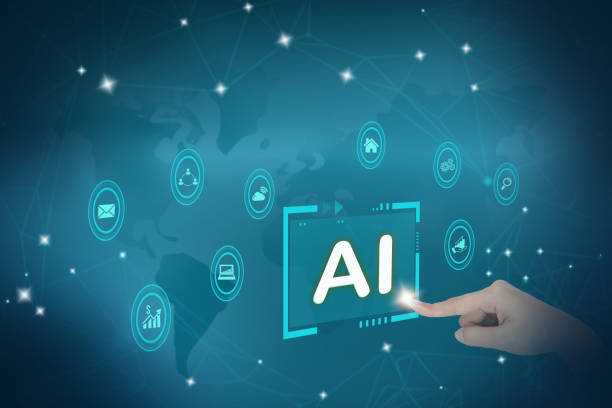
One of the most important understandings in the discussion about the future of AI in the workplace is the shift from a “replacement” mindset to a “collaboration” mindset. Artificial Intelligence is not intended to fully replace humans in most cases, but rather to serve as a powerful tool or an intelligent collaborator. This approach means enhancing human capabilities through technology, not diminishing them. For example, a graphic designer can use AI to generate initial ideas or optimize images, but the final creativity, artistic sense, and understanding of client needs still remain with the human.
This symbiosis of human and artificial intelligence leads to the creation of “augmented jobs,” where individuals, by leveraging the computational and analytical power of AI, are able to perform tasks that were previously impossible or highly time-consuming. This engaging yet realistic perspective shows us that the future of work will be more like a joint collaboration between humans and machines than a competition. Focusing on this collaboration helps organizations increase productivity and helps individuals develop their skills to work alongside AI.
Did you know that 94% of users’ first impression of a business is related to its website design? With a professional corporate website design by **Rasaweb**, turn this initial impression into an opportunity for growth.
✅ Attract more customers and increase sales
✅ Build credibility and trust in the audience’s eyes⚡ Get a free website design consultation!
Policymaking and Preparation for the Future: The Role of Governments and Organizations

A successful transition to the age of Artificial Intelligence and managing AI’s career future requires comprehensive and responsible policymaking by governments and active cooperation from organizations. Governments must have accurate forecasts of AI’s impact on the labor market and develop programs to support the workforce, including retraining, flexible unemployment insurance, and creating new job opportunities. Investing in digital infrastructure and encouraging innovation while protecting workers’ rights are among the key responsibilities of policymakers.
On the other hand, organizations also have a responsibility to prepare their organizational culture for the adoption of AI. This includes training employees, redesigning job roles, and creating an environment where humans and AI can effectively collaborate. Companies should focus on AI’s potential to create new value and improve work quality, rather than solely on cost reduction. This is an analytical and thought-provoking content that addresses how society can prepare for these major changes and emphasizes the importance of a comprehensive and long-term perspective in this area.
Conclusion and Final Outlook on the Future of AI in the Workplace
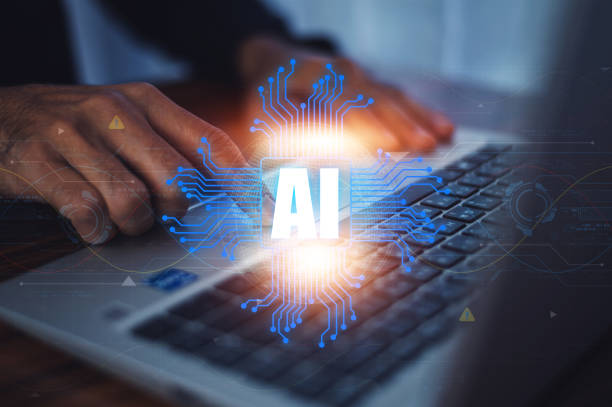
Ultimately, it can be said that the outlook for AI’s career future is neither a black-and-white picture of job destruction nor a flawless utopia. Instead, it is a future full of countless changes, challenges, and opportunities. Artificial Intelligence is set to profoundly change the nature of work, automate many repetitive tasks, and create new jobs that we cannot even imagine today. The key to success in this transitional period is the ability to adapt, engage in continuous learning, and cultivate skills that AI cannot replicate: creativity, empathy, critical thinking, and complex problem-solving.
For individuals, this means embracing lifelong learning and developing both soft and technical skills. For organizations, it means investing in technology and human capital simultaneously, and for governments, it means formulating supportive policies and necessary infrastructure for a fair transition. Artificial Intelligence is a powerful tool that, if guided correctly, can lead to increased productivity, improved quality of life, and the creation of new and meaningful job opportunities. This is an explanatory and informative content that provides a final summary and emphasizes the necessity of an optimistic yet realistic view of this outlook. Our career future is intertwined with AI, and it is up to us how we manage this opportunity.
Frequently Asked Questions
| Question | Answer |
|---|---|
| What impact will Artificial Intelligence have on the future job market? | AI will automate repetitive jobs, but at the same time, it will create new and more complex jobs in areas such as the development, maintenance, and training of AI systems. |
| Which jobs are most at risk of being replaced by Artificial Intelligence? | Jobs involving repetitive, rule-based tasks with low need for creativity or emotional intelligence, such as certain manufacturing jobs, data entry, and simple customer service, are most at risk. |
| What skills are essential for success in a career future with Artificial Intelligence? | Skills such as critical thinking, complex problem-solving, creativity, emotional intelligence, data literacy, the ability to work with AI, and lifelong learning are of high importance. |
| Will Artificial Intelligence cause widespread unemployment? | Some jobs will be lost, but history has shown that new technologies reshape the labor market and create new jobs rather than causing widespread unemployment. The need for adaptation and retraining is crucial. |
| What new job opportunities emerge with the advent of Artificial Intelligence? | Jobs such as Machine Learning Engineer, Data Scientist, AI Ethicist, Human-AI Interaction Designer, and Digital Transformation Consultant are among the new opportunities. |
| What is the role of education in preparing for a career future with Artificial Intelligence? | Education should focus on developing soft skills, computational thinking, digital literacy, and the ability to continuous learning to prepare individuals for future changes. |
| How can I prepare myself for labor market changes brought about by Artificial Intelligence? | You can prepare yourself by learning new skills related to AI and data, strengthening soft skills, developing critical thinking and creativity, and adopting lifelong learning. |
| Will AI ethics become an important career field? | Yes, given increasing concerns about biases, data privacy, and automated AI decisions, the role of AI ethics specialists will become crucial for ensuring its responsible development. |
| What is the importance of human-AI collaboration in the future of work? | Human-AI collaboration, rather than competition, will shape the future of the labor market. AI can be a tool to increase productivity and allow humans to focus on more complex and creative tasks. |
| Which industries will be most affected by Artificial Intelligence? | Almost all industries will be affected, but areas such as healthcare, finance, transportation, manufacturing, education, and customer service are pioneers in adopting and transforming through AI. |
And other advertising services of Rasaweb Advertising Agency
Smart Content Strategy: Professional optimization for campaign management using attractive UI design.
Smart UI/UX: A new service to enhance campaign management through custom programming.
Smart UI/UX: Professional optimization for increasing sales using marketing automation.
Smart Digital Branding: A combination of creativity and technology for analyzing customer behavior through precise audience targeting.
Smart Conversion Rate Optimization: A professional solution for analyzing customer behavior with a focus on optimizing key pages.
And over a hundred other services in the field of online advertising, advertising consulting, and organizational solutions
Online Advertising | Advertising Strategy | Advertorial
Sources
The Career Future of Artificial Intelligence
Opportunities and Challenges of Artificial Intelligence in the Labor Market
The Future of Artificial Intelligence and its Impact on the Labor Market
AI Outlook
? For a brilliant presence in the digital world, Rasaweb Afarin Digital Marketing Agency, with its comprehensive services including corporate website design, paves the way for your business’s success.
📍 Tehran, Mirdamad Street, next to Bank Markazi, Southern Kazeroon Alley, Ramin Alley, No. 6

